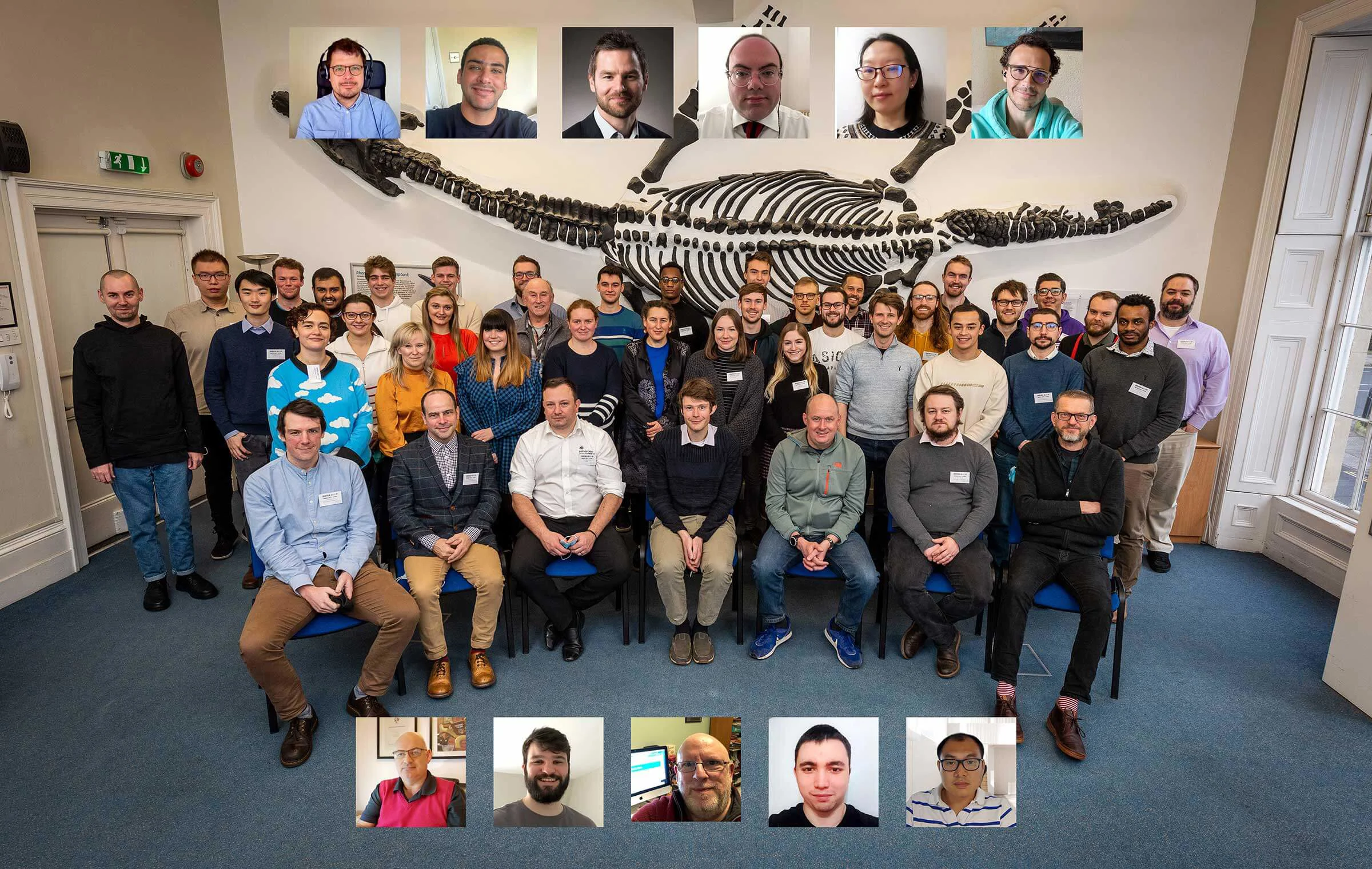AAPS Integrative Think Tank 5 with Lotus Cars
Posted by: Matthew Smith
From 17th-21st January 2022, AAPS CDT and Lotus Cars collaborated at the Bath Royal Literary and Scientific Institution (BRLSI) for the CDT’s fifth Integrative Think Tank, or ‘ITT5’. The event was run in a hybrid format, with those unable to attend in person joining online. A variety of members of AAPS were involved, including all cohort 3 students, many from cohorts 1 and 2, and various academics.
Leading up to the ITT in November last year, Lotus presented the initial challenges to AAPS which the week in January would focus on. The four themes were as follows:
- Batteries and the routes to a circular economy
- Prognostics and cloud-based services
- Powertrain future solutions (including advanced cooling, superconductors, and hydrogen combustion)
- More with less
The stage was set, and conversations were already happening amongst the AAPS CDT on the kinds of topics that might feature during the week.
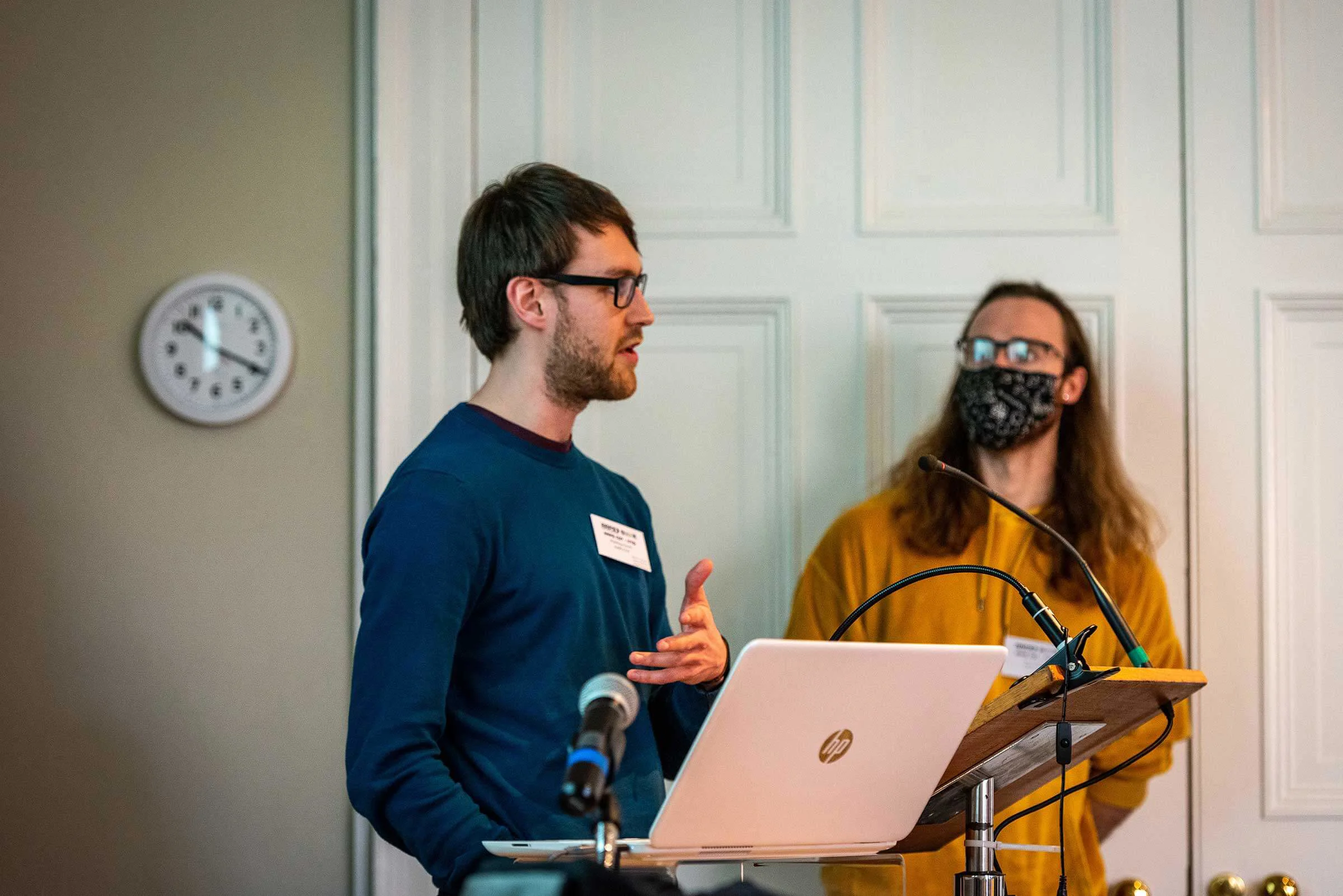
Day 1
On Monday morning, ITT5 was officially opened with an introductory presentation from the AAPS Team, followed by a recap of the challenge themes from our partners at Lotus. Next, the first two challenges were expanded on in talks from University of Bath academics, which provided attendees with the background knowledge needed to fuel the group discussions that followed. These small groups of students, academics, and partners were constructed to spark a wide range of ideas from a variety of disciplines and backgrounds. At this early stage in the week, groups ensured to note down all points raised in the open discussion on the challenges – no matter how conceptual or theoretical – to ensure no opportunities were missed. Presenting the challenges and background information before discussing in transdisciplinary groups is a tried-and-tested approach of previous ITTs, which once again provided a varied selection of fascinating topics to later be explored. At the end of the discussions, a plenary session allowed each group in turn to report back the considerations raised, and the process was repeated for the third challenge, bringing the first day to a close.
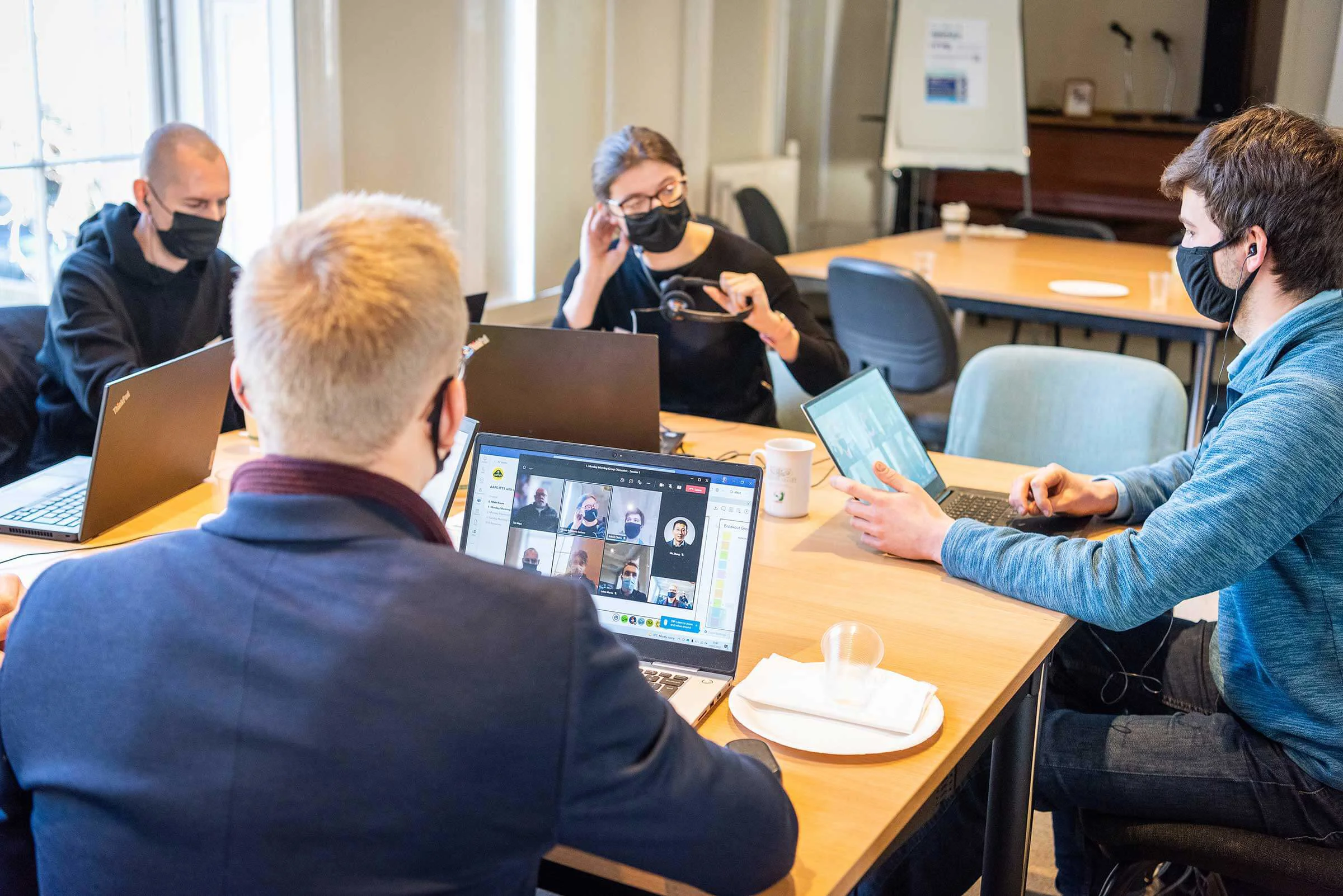
Day 2
The format of challenge recap, fundamentals mini-lecture, open discussion, and plenary session repeated on Tuesday morning for the fourth and final challenge: more with less. From around a hundred notes on the four initial challenge discussions, seven groups emerged as potential research areas to be explored:
- Battery design for second life
- Hydrogen rollout and customer acceptance
- Optimal powertrain architectures
- Hydrogen combustion engine architectures
- Hydrogen fuel cells
- New driver interfaces
- Connected vehicles and big data
A team was assembled for each of these seven areas, ensuring a range of students from different cohorts and disciplines. Our group, for example, worked on unpacking the research area of hydrogen fuel cells. Team members included an automotive engineer and a chemist from cohort 3, a mathematician and mechanical engineer from cohort 2, and a fuel cells expert from academia. Together, we spent the afternoon exploring potential interesting project areas within the fuel cells theme which suited AAPS and Lotus’ interests, before reporting back to the room.
On Tuesday evening, a dinner was held for the ITT participants at Hall and Woodhouse in Bath, providing an opportunity for more teambuilding, networking, and sharing of ideas in a very enjoyable, informal setting.
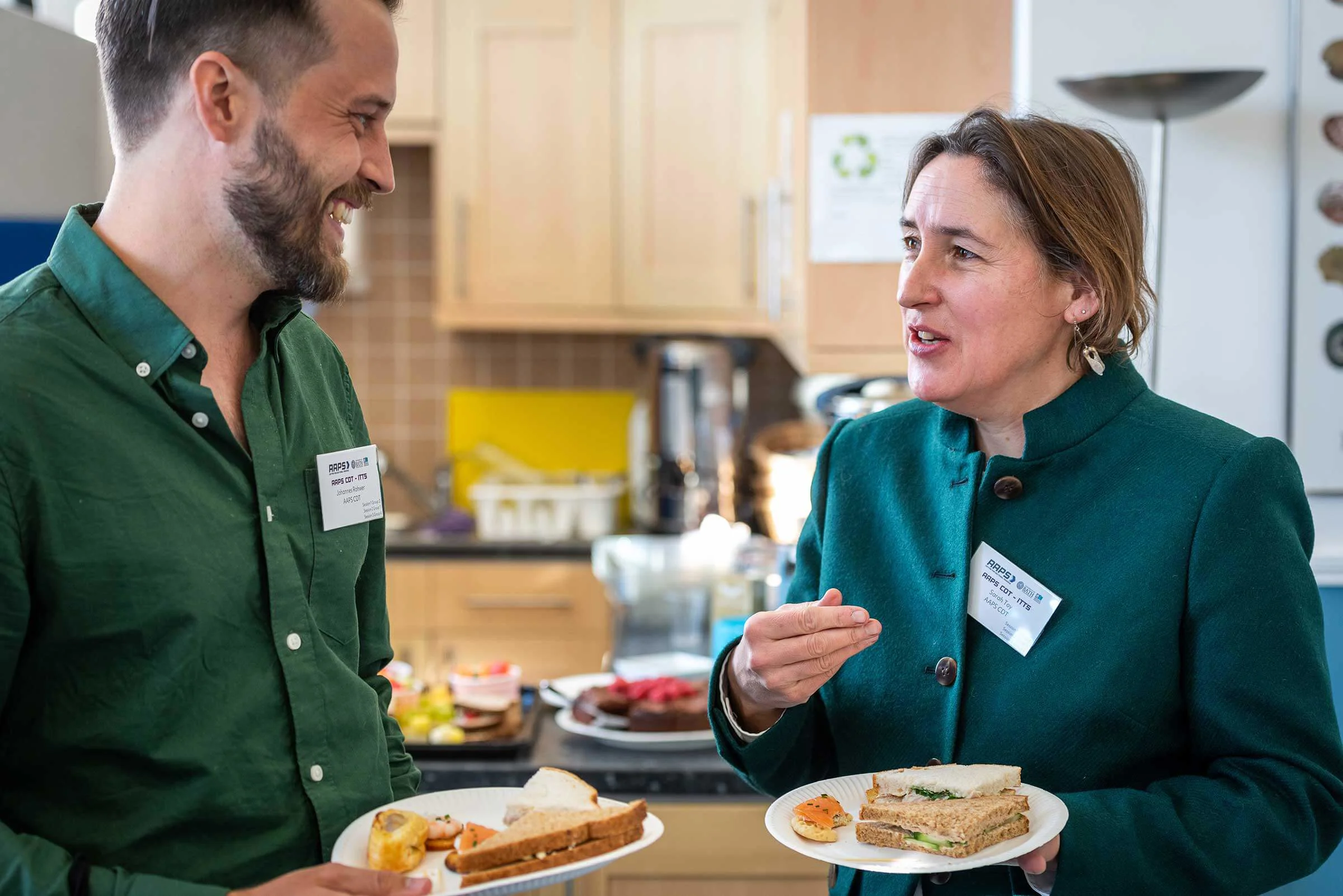
Days 3 and 4
Wednesday and Thursday were far more group-work focussed. Teams explored, developed, and refined their ideas with the goal of formulating potential research projects for the future. Status update presentations during these two days provided the opportunity for teams to consolidate their progress and share their work, prompting wider discussion and Q&A from the room, inciting new ideas. As the details of the project proposals were established over the two days, teams also constructed their final presentations for Friday morning.
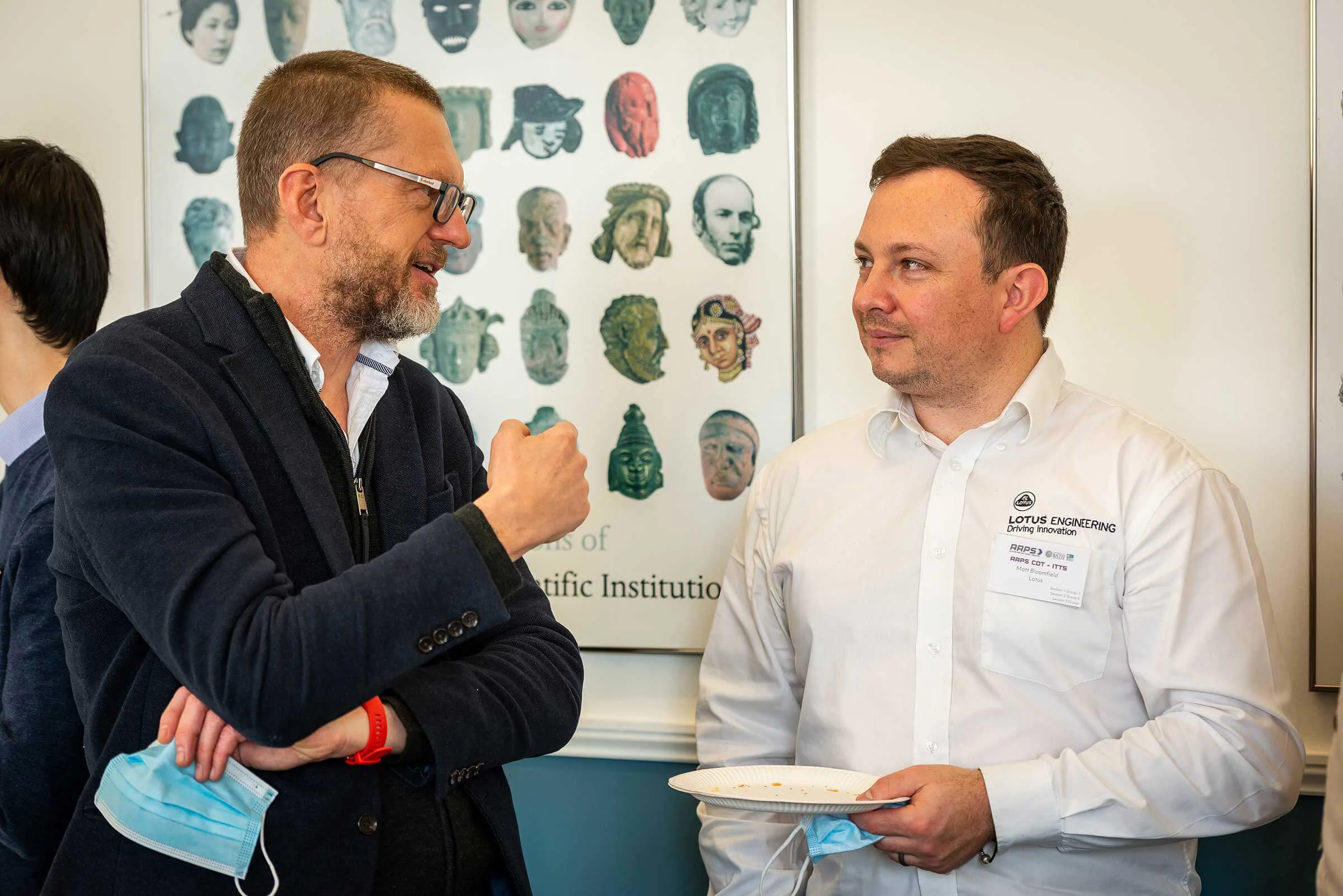
Day 5
Friday entailed the main event, where each of the seven teams presented their proposed project aim or research question, with some context and background research, a broad methodology, and their conclusions from the week, including other potential ‘honourable mention’ research topics they identified. Following each fifteen-minute talk, discussion was opened to the include the rest of the attendees, where each project was further developed and refined with some great suggestions all around.
The week came to a close with an informal networking session amongst all of the AAPS and Lotus attendees. Both partners agreed on the success of ITT5 in generating several inspiring new project ideas and enhancing our teamworking and partnership-related skills.
But the projects do not stop here - following the ITT, the projects are intended to be further developed in a variety of ways: as PhD projects, supported by partners; as mini-projects, such as for a master’s dissertation of PhD thesis formulation, or even as internship projects. Also, Cohort 3 have taken the opportunity to practice their project proposal writing from their team’s work, including a case for support, programme of work, and pathways to impact, preparing them for their upcoming summer projects and their PhDs beginning in Autumn 2022.
Overall, ITT5 with Lotus Cars and AAPS was a huge success for everyone involved, as well as being an enjoyable and challenging week. Stay tuned for ITT6 in Summer 2022!
